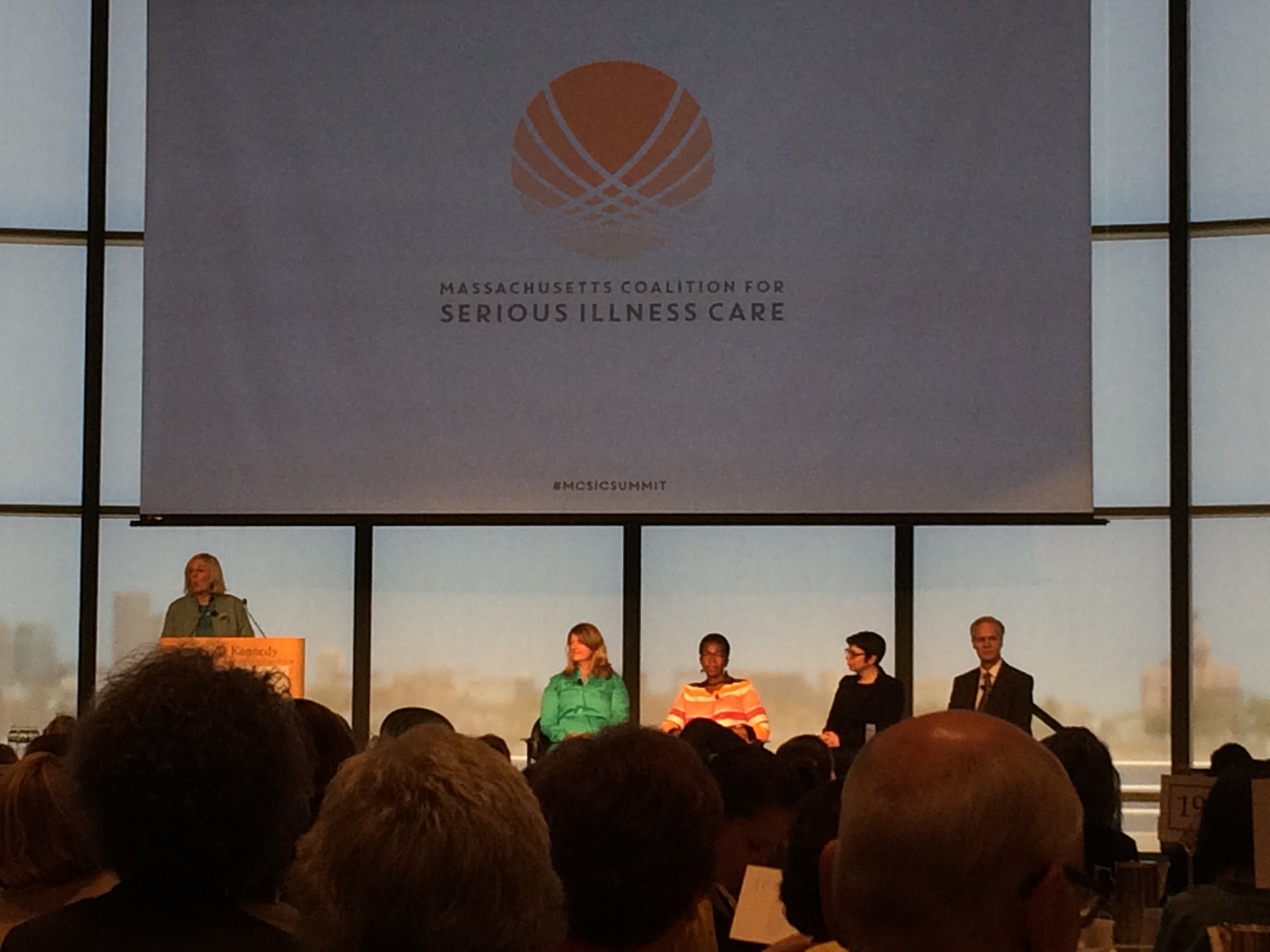Mass Home Care Part of New End-of-Life Care Coalition
BOSTON, May 12, 2016—Mass Home Care is one of the statewide groups that is participating in a new coalition to help people of all ages to make their wishes know about end of life care.
Eighty-five percent of Massachusetts residents believe that physicians and their patients should talk about end-of-life care – but only 15 percent have actually had such conversations, according to a new statewide survey by the Massachusetts Coalition for Serious Illness Care.
Strikingly, even those respondents facing serious illness are reluctant to plan ahead with their care team. Only 25 percent of respondents facing such afflictions reported talking with their physician about end-of-life care.
In addition, although the vast majority of people will eventually encounter medical situations in which they are unable to make decisions for themselves:
- Almost half of the population (46 percent), including most men, people of color, and those without college education, have not discussed their wishes for serious illness care with others.
- Most respondents (55 percent) have not named a health care agent (or proxy) to make such decisions.
“These findings are a wake-up call for all of us, clinicians and patients alike,” said Atul Gawande, M.D., M.P.H., co-chair of the Coalition, executive director of Ariadne Labs, a joint center of Brigham and Women’s Hospital and Harvard T.H. Chan School of Public Health, and author of the New York Times bestseller, Being Mortal: Medicine and What Matters in the End.
“People have priorities in their lives besides just living longer,” said Dr. Gawande. “They have goals and aims for the quality of their life, too. This survey shines a light on the need to ask people about what those priorities are– and then to ensure that they are honored.
“This is about how you want to live, not just about how you want to die,” Gawande said. “When clinicians don’t talk to people about their priorities for serious illness care, care can become misaligned with what matters to them. And the result is suffering.”
The landmark survey’s findings were shared at the Coalition’s inaugural Summit at the Kennedy Library in Boston.
The Coalition’s goal is “for everyone in Massachusetts to be cared for in accordance with their own goals and preferences, at every stage of health care and illness,” said Maureen Bisognano, co-chair of the Coalition and former President and CEO of the Institute for Healthcare Improvement. “We have to have the will to build a system where clinicians feel comfortable raising these conversations with their patients. And people feel comfortable raising it with their clinicians.”
But there is work to be done to achieve that goal, according to the survey. One-third of Massachusetts residents who had a loved one die in the past year said patient preferences were not fully followed. And one-fifth described the end-of-life care they witnessed as only fair or poor.
“None of us should be satisfied until people across the Commonwealth feel much more comfortable to express their wishes, and clinicians have the time and skills to really understand, so they can respect those wishes,” said Bisognano.
But the survey shines light on reasons for hopefulness, too. When respondents do name a health care agent, 85 percent talked to their agent about their wishes if faced with serious illness.
“There are people doing incredible work in this area in Massachusetts,” said Andrew Dreyfus, another Coalition founding member and President and CEO of Blue Cross Blue Shield of Massachusetts. “They are joining the Coalition to give these matters the focused attention they deserve. And to help make Massachusetts a national leader in serious illness care, just as we have been a national leader in so many other important areas of health care. This is the right time. And this is the right community in which to do it.”
“We want to make this conversation easier to have,” explained coalition member Al Norman of Mass Home Care. “People want their health care to be consistent with their values and wishes. The best way to do that is to tell family and practitioners what you want in advance—because when the time comes—you may not be able to have that conversation yourself.”

